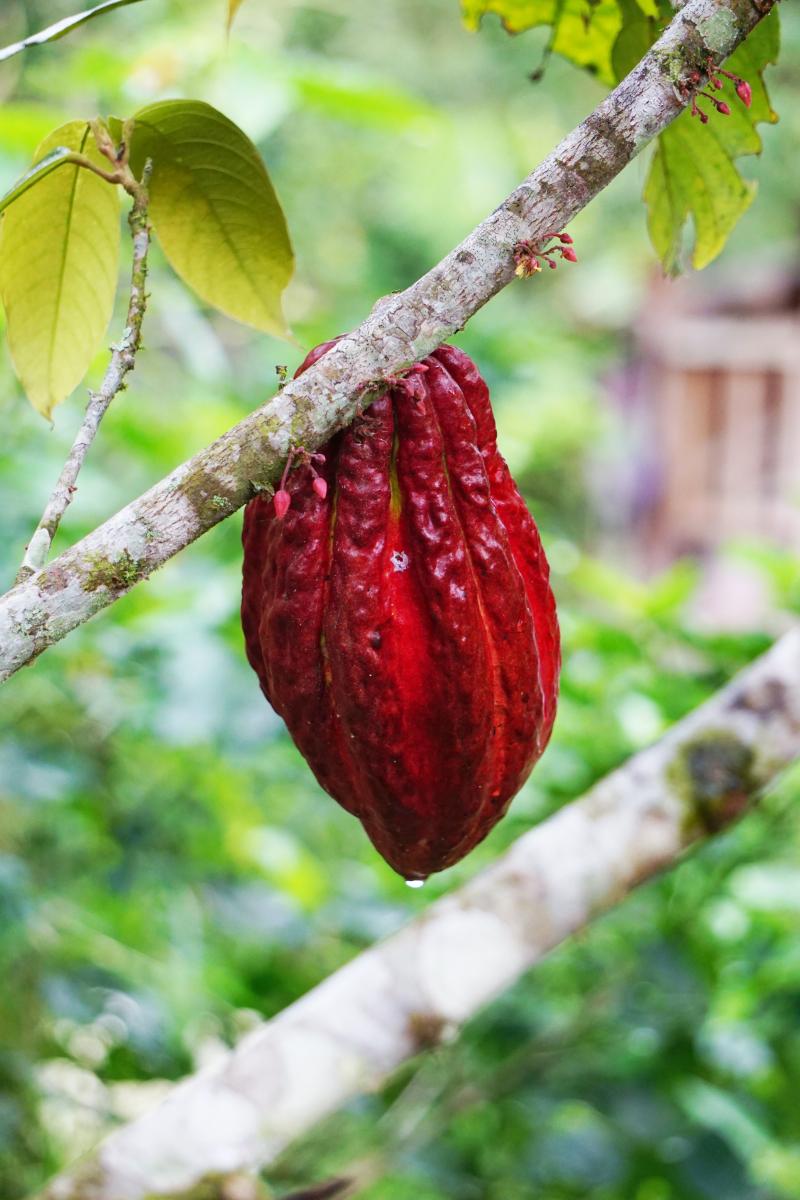Organic shade-grown cacao systems store more biomass and carbon than conventional shade-grown cacao

As the demand for chocolate has grown, so has the intensification of cacao production, which has significantly driven deforestation in tropical regions. Shade production incorporates a diversity of trees grown among cacao trees (agroforestry), and has been accredited for reducing the negative impacts of cacao production by storing carbon and mitigating climate change. However, a study recently published in the journal Agriculture, Ecosystems & Environment has shown that not all shade production is considered equal and organic management results in more carbon storage than conventional. This study quantified the biomass of shade and cacao trees as well as above ground, below ground and soil carbon stocks in 42 organic versus 42 conventional cacao agroforestry systems. Researchers found that organic farms had significantly more above and below ground biomass and a higher diversify of shade trees than the conventional counterparts. Shade trees were responsible for a large portion of carbon storage in both organic and conventional systems. Also estimating the monetary value of the stored carbon, the study concluded that organic cacao systems had greater potential to benefit from carbon schemes than conventional, which offers an additional economic boost to organic farmers.
Banner Photo Credit: Rodrigo Flores; unsplash.com
Photo Credit: Jenni Miska; unsplash.com

